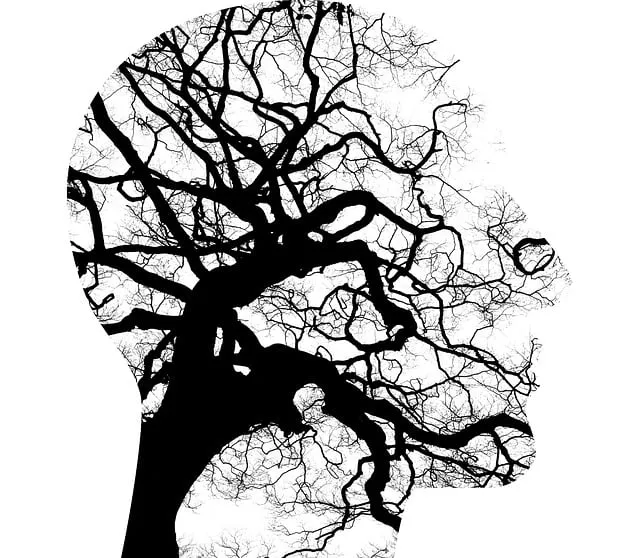Cultural sensitivity is key in modern mental healthcare, especially for diverse communities like Arvada where Kaiser provides services. By incorporating traditional healing methods, holistically addressing social determinants, and building trust through specialized training, mental health professionals can offer effective support. For Arvada residents seeking help via Kaiser, these strategies ensure culturally competent care, overcoming communication barriers and generalizing treatments. Investments in training, coaching programs, and podcasts will enhance accessibility and outcomes for all.
In today’s diverse society, cultural sensitivity is paramount in mental healthcare. This article explores the importance of understanding cultural nuances and their impact on treatment outcomes, focusing on Arvada and Kaiser as case studies. We delve into the challenges and barriers faced by these institutions in providing culturally competent care, while offering practical strategies to enhance services for all communities. Learn how Arvada and Kaiser are revolutionizing mental health practice through cultural sensitivity.
- Understanding Cultural Sensitivity in Mental Healthcare
- Challenges and Barriers in Providing Culturally Competent Care at Arvada and Kaiser
- Strategies for Enhancing Cultural Sensitivity in Mental Health Practice
Understanding Cultural Sensitivity in Mental Healthcare

Cultural sensitivity is a cornerstone in modern mental healthcare practice, reflecting an understanding that individuals’ experiences and perspectives are shaped by their cultural backgrounds. This awareness is particularly crucial when seeking to provide effective support for those dealing with mental illness, especially within diverse communities like Arvada where Kaiser offers mental health services. By embracing cultural sensitivity, healthcare providers can ensure that their approach is inclusive and respectful, breaking down barriers often associated with the stigma of mental illness.
Understanding cultural nuances enables professionals to adapt their practices, respecting traditional healing methods and incorporating them into treatment plans when appropriate. This approach not only improves patient outcomes but also fosters trust between clients and caregivers. Additionally, it encourages a holistic view of mental health, considering social determinants of health and community resources, such as Trauma Support Services or initiatives aimed at Mental Illness Stigma Reduction Efforts. These strategies, guided by the Mind Over Matter principles, can empower individuals to navigate their mental health journeys with greater resilience.
Challenges and Barriers in Providing Culturally Competent Care at Arvada and Kaiser

Providing culturally competent care at Arvada and Kaiser presents unique challenges. Both organizations strive to serve diverse populations but often encounter barriers when addressing specific cultural needs in mental healthcare. One significant hurdle is communication; language differences can create misunderstandings, impacting the quality of treatment. In a bustling metropolis like Arvada, with its vibrant tapestry of cultures, ensuring accessibility for non-English speakers is crucial, yet it remains a complex task. Similarly, Kaiser faces challenges in offering tailored care to various ethnic groups, as generalizing treatments can lead to inadequate anxiety relief for diverse patient backgrounds.
To overcome these obstacles, Arvada and Kaiser must invest in specialized training for their mental health professionals. Developing mental wellness coaching programs and implementing mental wellness podcast series production can offer creative solutions. By incorporating cultural sensitivity into their practices, these healthcare providers can better serve their communities, foster trust, and ultimately improve patient outcomes, making quality mental healthcare accessible to all who seek it in Arvada or through Kaiser.
Strategies for Enhancing Cultural Sensitivity in Mental Health Practice

In enhancing cultural sensitivity within mental health practice, healthcare providers in Arvada, particularly those associated with Kaiser, can employ various strategies that foster inclusive care. One effective approach is to integrate Compassion Cultivation Practices into training programs. This involves teaching professionals to cultivate self-awareness and empathy, allowing them to better understand and respond to the unique needs of diverse patients. By practicing mindfulness and compassionate communication, mental health workers can create a safe space for individuals from different cultural backgrounds to express their concerns and fears.
Additionally, implementing a robust Community Outreach Program can significantly impact improving access to mental health services. This initiative can include cultural sensitivity workshops, peer support groups tailored to specific communities, and educational campaigns that raise awareness about available resources. Such programs ensure that members of diverse communities in Arvada, including those seeking help through Kaiser, have the guidance and support needed to navigate the mental healthcare system effectively. Through these strategies, mental health practices can move towards a more inclusive and responsive environment, addressing depression prevention and other cultural-specific concerns.
Cultural sensitivity is an essential aspect of providing effective mental healthcare, especially in diverse communities like Arvada and areas served by Kaiser. By recognizing and addressing the unique challenges and barriers to culturally competent care, as discussed in this article, mental health professionals can significantly enhance patient outcomes. Implementing strategies such as cross-cultural training, inclusive service delivery models, and promoting cultural awareness not only improves access to mental health services but also fosters trust and understanding among diverse populations. For those seeking mental health support in Arvada or considering Kaiser for care, prioritizing cultural sensitivity ensures a more welcoming and effective treatment journey.



